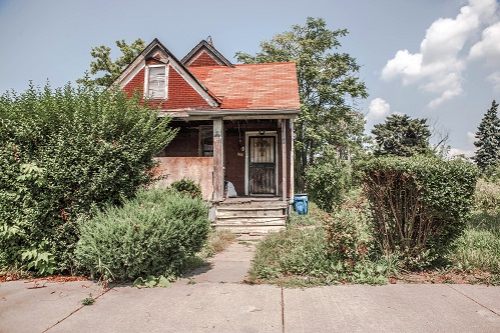How does a home insurance claim work?
On the surface, the home insurance claims process is simple. You have damage to your home, belongings, or both, and you contact your insurance company to file a claim. They review the damage and write you a check. Some home insurance claims are that simple, but others can be far more complex.
The steps to filing a home insurance claim, and the process that follows, can be broken down like this:
- Call the police if necessary. This is always step one if a crime has been committed. Your insurance company will require a police report if you are filing a claim for burglary, theft or vandalism. If someone has been seriously injured in the incident, your call should be to 911.
- Contact your insurance company. Call your insurer immediately after the incident occurs to file your claim. The claims department will assign a claims number and an insurance adjuster to your case. "Be prepared to give the adjuster a description of the damage to your property, details about the loss and documentation related to your claim," says Loretta Worters, vice president of media relations for the Insurance Information Institute.
- Document the damage. Photograph and and take video of any damage and take detailed notes so you can provide documented proof to your insurance company. If there has been a theft, make a list of everything that is missing.
- Cooperate with your insurer during the claim investigation. Follow any directions the adjuster gives you. You may be required to allow an inspection, produce documentation, provide a recorded statement or submit to an examination under oath.
- Make repairs to prevent further damage. If you have a damaged roof or water damage that may make your home unlivable, make temporary repairs to prevent further damage. "It's the homeowner's obligation to prevent damage from getting worse. For example, you may need to hire a water remediation company if you suffer emergency water damage, or you may have to install a tarp on your roof to prevent interior damage stemming from a roofing problem," says Josue Espinosa, a property insurance attorney in Orlando.
- Keep all the receipts for repairs. Make sure you have all of your receipts, and make copies because you will have to submit the originals for reimbursement. If you must temporarily move out of your home because it's uninhabitable, record all your lodging and food expenses. You could submit them to your insurance company for reimbursement.
- Consider hiring a public adjuster. Your insurance company's adjuster works for the insurance company, while a public adjuster has no relationship with your insurance company and works for you. Like a company adjuster, a public adjuster will evaluate your property (either in-person or via phone) , assess any pre-existing damage and ask questions about routine maintenance you've performed or other safety measures you've implemented to reduce the risk of injury, theft or damage on your property. If you do not agree with the insurance company adjuster's final determination or the settlement is significantly lower than expected, you may need to hire a public adjuster for help.
When to file a home insurance claim
You should file a home insurance claim when:
- There is damage to your home or personal property that you can’t cover out of pocket
- The damage is significantly above your deductible
- Your home insurance policy covers the damage
- The claim payout would outweigh the potential increase in your rates
You should also file a claim if you face a liability suit for damage or injuries to another person.
Learn more about when to file a home insurance claim.
Should I file a home insurance claim?
Results
How to file a home insurance claim
Filing a home insurance claim is as simple as notifying your insurance company of the damage. A claim can usually be filed in one of several ways:
- By calling the company’s claims line
- Directly with your insurance agent, if you have one
- On the company website
- Using the company’s app
When should you not file a homeowners insurance claim?
Not every incident requires filing a home insurance claim, especially if you're worried about your premiums going up.
You should not file a home insurance claim if:
- The cost of the claim is less than your deductible
- The damage isn’t covered by homeowners insurance
- You are likely to see a rate increase large enough to negate the claim payout
- You can afford the repairs out of pocket without hardship
A history of multiple homeowners insurance claims over a short period, however minor, can affect your premiums, your ability to obtain new homeowners insurance if you face cancellation, or your ability to find lower rates if you need to shop around.
How long do home insurance claims take?
Every state can set rules for the deadline by which an insurance company can accept or deny a claim.
"In California, insurance companies have 15 days to acknowledge a claim," Worters says. "Once acknowledged and all documentation and proof have been received, they have 40 days to approve or deny the claim. If a settlement is reached, they have 30 days to make the agreed-upon payment."
In Florida, meanwhile, insurance carriers have 14 days to review and acknowledge receipt of communication regarding a claim, according to Espinosa.
In South Carolina, insurance companies are granted a "reasonable" amount of time to either deny or pay your claim.
In North Carolina, insurance companies must acknowledge receipt of your claim within 30 days, but there's no set time frame on when they must settle because "each claim is different and the length of time to settle may vary," the state says.
The amount of time required to fully settle a claim depends on the type of claim and how long repairs will take.
How are homeowners insurance claims paid?
Insurance claims may be paid by check or electronic funds transfer. Homeowners claims for damage are usually paid in two parts. An initial payment for the depreciated cost of the repairs, and then a second payment for the remainder once the repairs are done, and the final cost is known.
"In most instances, an insurance adjuster will inspect the damages and offer you a certain sum of money for repairs, based on the terms and limits of your homeowners insurance policy," Worters says. "The first check you get is often in advance against the total settlement amount, not the final payment."
If you accept a lump-sum settlement upfront and you later discover further damage, you can reopen your claim and file for an additional amount.
"Most policies require claims to be filed within one year from the date of the disaster," Worters says.
The check will be made out to the named insured listed on the declarations page of your insurance policy. If you have a mortgage on your home, the claims check may be made out to both you and the lender.
"Your lender has a financial interest in your property, and they want to ensure that the necessary repairs are made. They will have to endorse your claims payment check before you can cash it," Worters says. "Depending on the circumstances, your lender may instead want to put the money in an escrow account and authorize payment for the repairs in stages as the work is completed."
FAQ: Homeowners insurance claims
Can you cancel a home insurance claim?
Yes, you can cancel a home insurance claim as long as the insurance company has not yet made a payment.
How soon can you file a claim after getting home insurance?
You can file a claim as soon as your home insurance is in force, but the damage must also have happened while the policy is in force. You can’t file a claim for anything that happened before the policy became active.
How do you file a claim against someone else’s home insurance?
If you need to file a liability claim against someone else’s insurance, the best way to approach it is to speak to the homeowner and ask them to file the claim. However, if they refuse, you can contact the insurance company yourself to file the claim.




